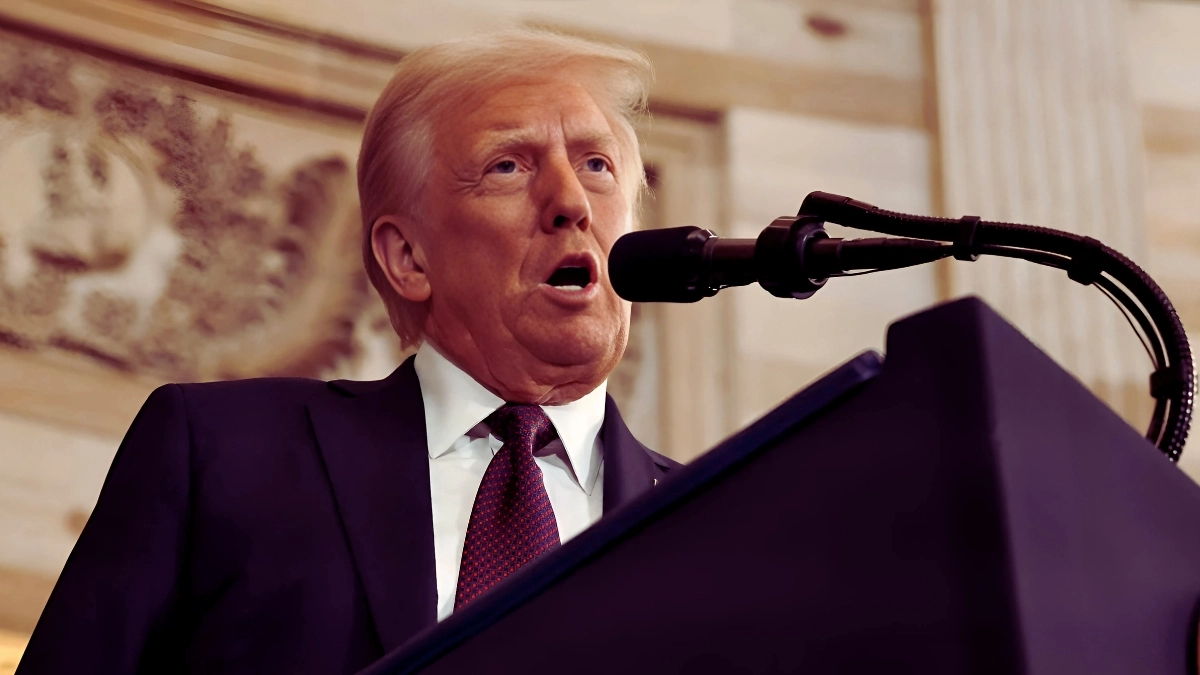On January 20, 2025, Donald Trump was inaugurated for a historic second term as the 47th President of the United States. Almost immediately, he set the tone for his administration by signing a series of executive orders that reversed many policies from his predecessor, Joe Biden. This unprecedented flurry of actions has sparked significant reactions from media outlets across the globe, particularly in India and the USA, as they grapple with the implications of Trump’s decisions on immigration, climate policy, and social issues.
As Trump embarks on what he calls a “golden age of America,” his administration’s first day was marked by a controversial agenda that included withdrawing from the Paris climate agreement and implementing strict immigration measures. This article delves into how various media outlets have responded to these sweeping changes and what they mean for both American citizens and international observers.
Who is Affected by Trump’s Executive Orders?
Trump’s executive orders impact a wide range of stakeholders, including:
- Federal Employees: The order mandating federal workers return to office full-time signals a shift away from remote work policies established during the COVID-19 pandemic.
- Immigrants and Asylum Seekers: New restrictions on immigration threaten to deport millions and end birthright citizenship for children born in the U.S. to undocumented parents.
- Environmental Advocates: Withdrawal from the Paris climate accord has raised alarms among environmentalists who fear increased carbon emissions and diminished global cooperation on climate change.
What Actions Did Trump Take?
On his first day, Trump signed several notable executive orders:
- Withdrawal from the Paris Climate Agreement: This move reinstates policies aimed at boosting fossil fuel production while sidelining international climate commitments.
- National Emergency Declaration at the Southern Border: This declaration allows for increased military presence and aims to expedite deportations.
- Revocation of Diversity Programs: The administration announced plans to eliminate funding for diversity, equity, and inclusion initiatives within federal agencies.
- Pardons for January 6 Rioters: Trump granted pardons to hundreds involved in the Capitol riots, a decision that has stirred outrage among many lawmakers and citizens.
When Did These Changes Occur?
The executive orders were signed immediately following Trump’s swearing-in ceremony on January 20, 2025. This rapid implementation reflects Trump’s commitment to fulfilling campaign promises and demonstrates his approach to governance—favoring swift action over deliberation.
Where is the Global Attention?
Media outlets worldwide have closely monitored these developments. In India, news platforms are particularly interested in how these changes might affect U.S.-India relations, especially regarding trade and energy imports. American media is focused on domestic implications, analyzing public reactions and potential legal challenges to Trump’s orders.
Why Are These Actions Controversial?
The controversy surrounding Trump’s executive orders stems from their potential societal impact:
- Immigration Policy Reversal: Critics argue that ending birthright citizenship undermines fundamental American values and could lead to widespread fear among immigrant communities.
- Environmental Concerns: Environmentalists warn that withdrawing from global agreements will exacerbate climate change issues at home and abroad.
- Social Equity Issues: The elimination of diversity programs is seen as a regression in efforts toward inclusivity and equality within federal institutions.
How Are Media Outlets Responding?
Media reactions have been polarized:
- Supportive Outlets: Some conservative media outlets celebrate Trump’s actions as necessary steps toward restoring American sovereignty and economic independence. They argue that these measures align with voter expectations expressed during the election.
- Critical Coverage: Conversely, liberal media platforms emphasize the potential harm these policies could inflict on marginalized communities and international relations. They highlight expert opinions warning against the long-term consequences of such unilateral decisions.
Expert Opinions and Public Sentiment
Experts in immigration law express concern over the legal ramifications of Trump’s orders, particularly regarding birthright citizenship. Public sentiment appears divided; while some applaud Trump’s decisive actions, others express anxiety about their implications for civil rights and environmental sustainability.
Conclusion
Donald Trump’s first day back in office has set a contentious tone for his second term. As media outlets continue to analyze these developments, it is clear that the ramifications of his executive orders will be felt across various sectors—both domestically and internationally. The coming weeks will likely see further debate as stakeholders respond to these sweeping changes.
FAQs
What does this mean for U.S.-India relations?
Increased scrutiny on U.S. energy policies may affect trade dynamics between India and the U.S., especially regarding energy imports.
Why is withdrawal from the Paris climate agreement significant?
It signals a retreat from international climate commitments at a time when global cooperation is critical in combating climate change issues.
What implications do these executive orders have for immigrants?
The new immigration policies threaten deportation for millions and aim to end birthright citizenship for children born in the U.S. to undocumented parents.
How have media outlets reacted to Trump’s actions?
Reactions are polarized; supportive outlets praise his decisiveness while critical ones highlight potential negative impacts on civil rights and international relations.
What are some key executive orders signed by Donald Trump on Day 1?
Key orders include withdrawal from the Paris climate agreement, declaring a national emergency at the southern border, mandating federal employees return to office full-time, and revoking diversity programs.

